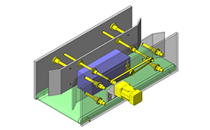(!) Since support from Microsoft will end on January 14th, 2020, Windows 7 will be excluded from the recommended environment from December 15th, 2019 on this site. Vì lý do Microsoft kết thúc hỗ trợ cho Windows 7 vào ngày 14/01/2020, Windows 7 sẽ là hệ điều hành không được khuyến khích sử dụng với trang web này từ ngày 15/12/2019.
Search by Category / Brand Tìm theo danh mục, nhãn hiệu
Search by Category Tìm theo danh mục
- Scheduled Maintenance Notice: This site will be unavailable due to scheduled maintenance from 8:00 24/11/2024 to 6:00 (ICT) 25/11/2024. We apologize for the inconvenience.
- [Thông báo] Cập nhật địa chỉ kho tập kết hàng hóa tại khu vực miền Nam của MISUMI Việt Nam. Xem chi tiết.
[Announcement] Update on warehouse address in the Southern region of MISUIMI Vietnam. See more. - [Cảnh Báo] Thủ Đoạn Lừa Đảo Từ Nhân Viên Giao Hàng – Yêu Cầu Trả Phí Ship. Xem chi tiết.
[Warning] Fraud Calling from Shipper - Asking to Pay Shipping Fee. See more.
Small AC Motors
Small AC Motors play a pivotal role in factory automation, act as the driving equipment for machinery and processes. Picture them as the engine of your automation setup, responsible for the controlled movement of various components. Despite their compact size, these motors are sturdy and versatile, making them perfect for applications where space is limited.Some of these motors are equipped with gear heads, which function as adjustable gears to fine-tune speed and force output, similar to gears on a bicycle. Controllers step in to manage these motors, acting as conductors that ensure precise coordination of their actions.A key feature is speed control, where the motor's pace is tailored to match its application. Additionally, reduction ratios are vital, transforming high-speed rotations into controlled and powerful movements, essential for tasks demanding accuracy.For added safety, certain small AC motors incorporate electromagnetic brakes, akin to those found in cars, ensuring secure stops. Moreover, the inclusion of a clutch component allows controlled motor engagement, much like shifting gears in a vehicle.Engineers specialized in factory automation must grasp the interaction between these small AC motors, their gear heads, controllers, and additional components.
Brand |
|
|---|---|
| CAD |
|
| Days to Ship |
|
Product not found.Sản phẩm không có.
Loading...Tải…
Application example related to this categoryVí dụ ứng dụng liên quan đến danh mục này
Related Categories to Small AC MotorsDanh mục liên quan đến Small AC Motors
FAQ AC Motors
- Question: How does the working principle of a 3-phase induction motor differ from that of a single-phase induction motor?
- Answer: The key difference between these two types of motors lies in the power supply they require. A single-phase induction motor operates on a single alternating current (AC) voltage source, while a 3-phase induction motor requires three separate AC voltage sources with a phase difference of 120 degrees between them. This difference in power supply affects the motor's starting torque, efficiency, and overall performance. 3-phase motors typically provide smoother and more reliable operation, making them suitable for industrial applications, whereas single-phase motors are often used in smaller appliances and machines.
- Question: Between the induction motor and the DC motor, which one is more suitable for variable-speed applications and why?
- Answer: DC motors are generally more suitable for variable-speed applications because their speed can be easily controlled by adjusting the voltage supplied to them. This feature allows precise speed regulation, making DC motors ideal for applications like robotics and conveyor systems. On the other hand, induction motors, especially single-phase ones, are typically less suited for variable-speed control, as their speed is primarily determined by the frequency of the AC power supply.
- Question: How do gear heads contribute to the performance of motors?
- Answer: Gear heads, also known as gearboxes, are often used in conjunction with motors to achieve specific speed and torque requirements. They allow motors to transmit power more efficiently by matching the motor's speed and torque characteristics to the needs of the application. Gear heads can increase output torque, reduce speed, and enhance precision in various automation processes.
- Question: Are there motors with adjustable speed or direction?
- Answer: There are motors designed with adjustable speed and direction control. These motors often incorporate electronic speed controllers (ESCs) or variable frequency drives (VFDs) that allow for precise adjustment of motor speed and the ability to reverse direction. Such motors are commonly used in applications where flexibility and control are essential, such as in conveyor systems, robotics, and industrial machinery.
- Question: What are the typical applications of AC motors?
- Answer: AC motors find widespread use in various applications, including fans, pumps, compressors, conveyor systems, HVAC (heating, ventilation, and air conditioning) units, and industrial machinery. Their versatility, reliability, and ability to operate on AC power grids make them essential in many automation and industrial processes.








How can we improve?
How can we improve?
While we are not able to respond directly to comments submitted in this form, the information will be reviewed for future improvement.
Customer Privacy Policy
Thank you for your cooperation.
While we are not able to respond directly to comments submitted in this form, the information will be reviewed for future improvement.
Please use the inquiry form.
Customer Privacy Policy